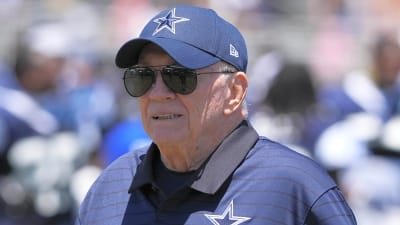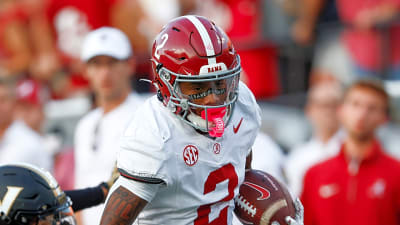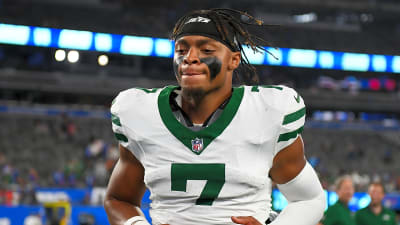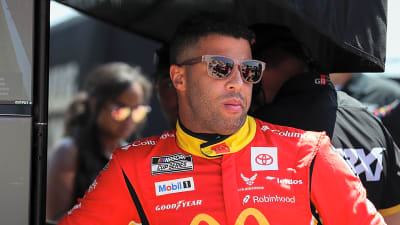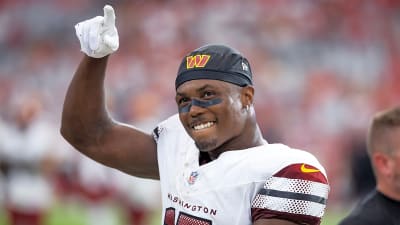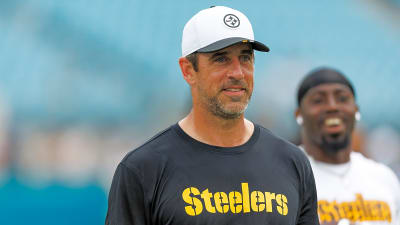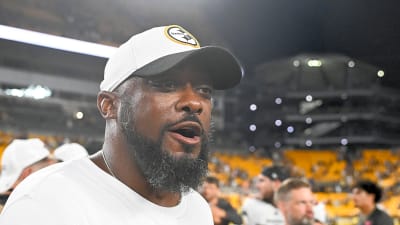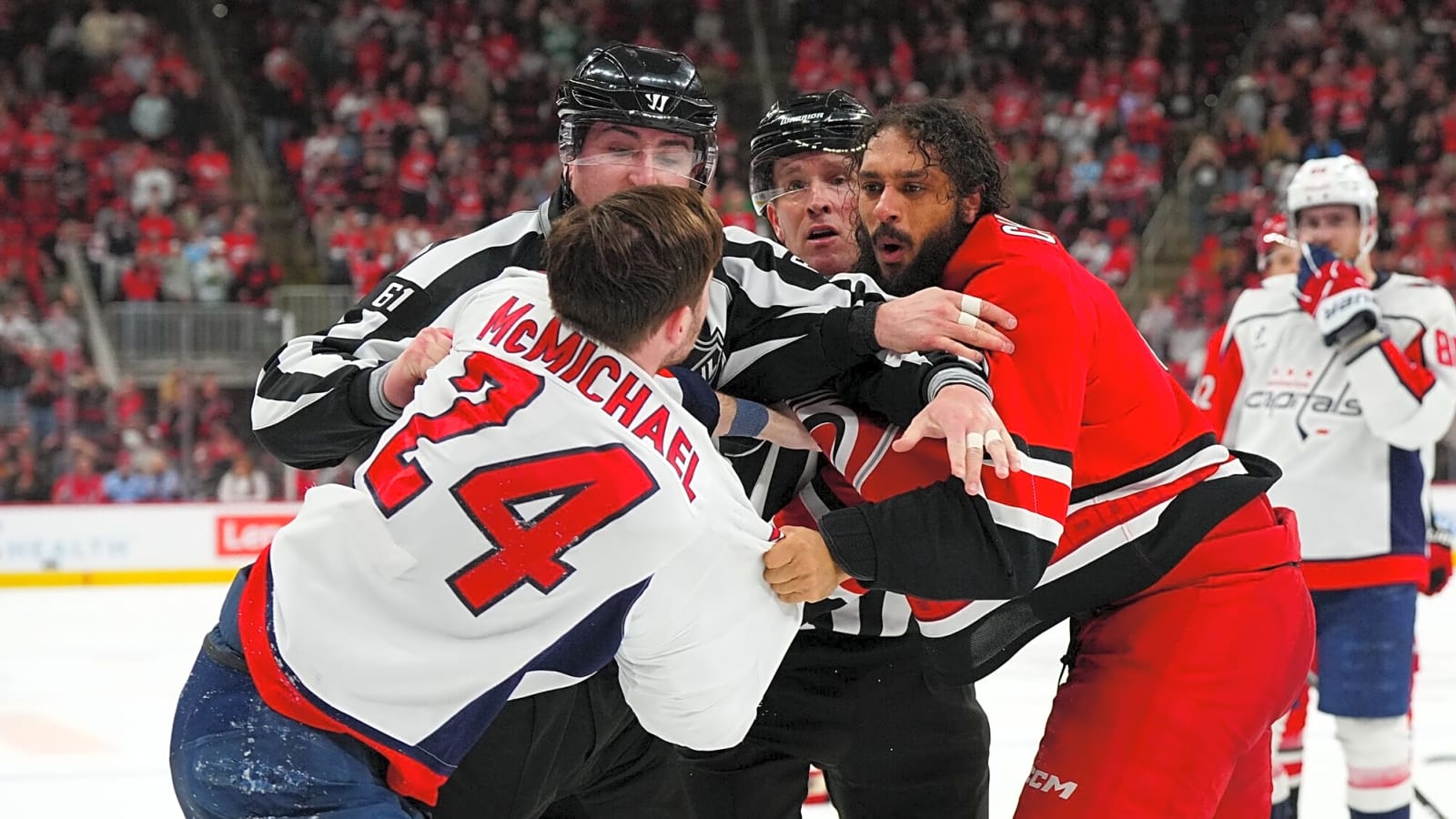
Washington Capitals: 1st in Metropolitan Division, 111 points, def. MTL in Round 1 (4-1)
Carolina Hurricanes: 2nd in Metropolitan Division, 99 points, def. NJD in Round 1 (4-1)
Schedule (ET)
| Date | Game | Time (ET) |
| TBD | 1. Carolina at Washington | TBD |
| TBD | 2. Carolina at Washington | TBD |
| TBD | 3. Washington at Carolina | TBD |
| TBD | 4. Washington at Carolina | TBD |
| TBD | 5. Carolina at Washington | TBD |
| TBD | 6. Washington at Carolina | TBD |
| TBD | 7. Carolina at Washington | TBD |
The Skinny
If the impending matchup between the Capitals and Hurricanes comes as a surprise to you, the reader, it probably shouldn’t; the first and second seeds in the Metropolitan Division have met during every postseason since the playoff format returned to ‘normal’ in 2022.
This year, the M1 vs M2 felt particularly inevitable. Washington, the No. 1 seed in the East, and Carolina met the upstart Montreal Canadiens and floundering New Jersey Devils, respectively, as heavy favorites in the first round. It was still playoff hockey, though, and both series produced their share of memorable moments.
The Capitals flew to Montreal for Game 3 with a sweep in their sights, but the Habs blacked their eyes in a wild 6-3 shootout that saw Tom Wilson and Josh Anderson wrestle onto the Washington bench and both starting goaltenders leave injured. Wilson again dominated the headlines in Game 4 by eviscerating Alexandre Carrier with a stomach-turning ( and, yes, 100% legal ) hit seconds before Brandon Duhaime tied the game at 2-2.
The Canadiens never led again during the series, and the Caps’ spirited battle with Les Habitants seems to have snapped them out of the late-season funk (4-5 in April) that coincided with the end of Alex Ovechkin’s Great Chase.
The Hurricanes similarly needed a jolt after their own springtime skid, which saw them land in the playoffs with a thud (2-6-1 in April). Their tepid form didn’t prevent a Game 1 demolition of the listless Devils, but Jersey kept some pride by forcing four overtimes over the final three games and stealing a win.
The Canes still overwhelmed their opponents in five games, and inspired performances by top center Sebastian Aho (3 G, 8 P) and Game 4 hat-trick hero Andrei Svechnikov (5 G) assuaged concerns over their perceived lack of star power.
Now, Carolina moves onto a date with the Caps, whom they’ve come to despise in the years since Ovechkin’s KO of a then-teenaged Svechnikov in 2019. Jalen Chatfield’s reckless bodyslam of Connor McMichael earlier this season added fuel to the fire, and, with the way the 2025 Stanley Cup Playoffs have been going, the teams should be at each other’s throats from the opening faceoff.
Head to Head
Washington: 2-2-0
Carolina: 2-1-1
The Hurricanes failed to eclipse the 100-point mark for the fir st time since the COVID-shortened 2020-21 campaign, but that didn’t stop them from notching two wins and a loser point against the Presidents’ Trophy runners-up. The teams split two games before the turn of the year before Carolina bossed the Capitals 5-1 in a March 2 contest overshadowed by Chatfield and McMichael’s punchup/judo match.
Washington got its win back a week later in a shootout but never looked comfortable during the season series against the Hurricanes; the Caps controlled less than 43% of shots, scoring chances, and goals over the four meetings.
Ovi was the Capitals’ lone multi-goal scorer (2 G in 3 GP) in the series, while Seth Jarvis torched Washington for three goals across three separate contests.
Bizarrely, presumptive Gam e 1 starter Logan Thompson played just a single period against Carolina before being yanked for Charlie Lindgren, who was excellent in three starts versus the Canes (2-1-0, .920 SV%).
Top Five Scorers
Carolina
Sebastian Aho, 8 points
Andrei Svechnikov, 6 points
Seth Jarvis, 5 points
Jackson Blake, 4 points
Shayne Gostisbehere, 4 points
Washington
Dylan Strome, 9 points
Alex Ovechkin, 5 points
Connor McMichael, 5 points
Tom Wilson, 5 points
Anthony Beauvilier, 5 points
X-Factor
Power-forward mania is a real thing. It’s why Hockey Twitter christened ‘Playoff Brady Tkachuk’ as an unstoppable beast before the Ottawa captain had ever played a second of postseason hockey. It’s why many expect to see Wilson at the 2026 Olympics to offset Tkachuk’s impact. And it’s why Wilson’s bone-jarring hit on Carrier made Wilson the hottest name in the sport.
Playoff hockey is the perfect marriage skill and violence, and, even on the back of a brilliant 33-goal season, it’s the latter that makes Wilson the big bucks. His physicality and keen understanding of in-game momentum were guaranteed to pay dividends against a diminutive, inexperienced team like Montreal. Are the Canes, who should know all about the rough-and-tumble nature of the postseason by now, better prepared to survive Wilson?
Maybe not. Even in a series the Hurricanes won by a combined score of 19-11, their trademark inability to clear the crease was a recurring theme against the Devils. The top two pairs especially (Slavin-Burns, Orlov-Chatfield) were notably passive in net-front scrambles.
Carolina has covered for its lack of toughness for years by dominating possession, but against a great forecheck led by Wilson, Nic Dowd, and Brandon Duhaime, that will be easier said than done. The Canes must match the Capitals’ and, more pointedly, Wilson’s intensity to advance to Rod Brind’Amour’s third Eastern Conference Final as their head coach.
Offense
The Capitals rode a lofty 12.6 team shooting percentage to the NHL’s second-highest scoring attack during the regular season and kept the party rolling with a 12.9% mark in Round 1. Of their seven (!) 20-goal scorers, five got on the board more than once, with P.L. Dubois and Aliaksei Protas (out from Games 1-4) as the exceptions. The Caps’ juiced-up SH% goes further than good luck; they’re such a big team from top to bottom that it’s tough to keep them out of high-danger areas, which has been an issue for Carolina all season.
Connor McMichael – Washington Capitals (3)* pic.twitter.com/GWqgrLaMTM
— NHL Goal Videos (@NHLGoalVideos) April 26, 2025
Ovechkin got on the board early and often against Montreal including, shockingly, the first playoff OT goal of his illustrious career. His centerman Dylan Strome is far more than a sidekick these days. Strome was a late bloomer after going in the top five of a historically loaded 2015 Draft, but two consecutive seasons of leading the Caps in scoring culminated in an 82-point campaign this season.
He was even better against Montreal and was the joint fourth-highest-scoring player in the postseason when his series ended. If the Hurricanes hard match captain Jordan Staal with anyone (they sicced Staal on Nico Hischier in the first round), it will be Strome.
Protas is back in the fold for Round 2 after a 30-goal breakout season, but his old spot on Ovi’s off-wing won’t be handed back to him. Playoff stud Anthony Beavillier (36 P in 60 career GP) kept that spot for Game 5 despite Protas’ availability, and Beauvillier’s five even-strength points are tied wi th Connor McMichael for second on the team behind Strome.
Led by Aho, the Hurricanes actually scored one more goal than the high-powered Washington attack in the conference quarterfinal round. Caps killer Jarvis (7 G in 14 career GP against WAS) was relegated to Staal’s checking line to accommodate the streaking Svechnikov, but notched three helpers and a goal on the power play all the same.
That unit was the NHL’s second-worst in the second half (12.4 % since 1/1), but they pulled it together against New Jersey to cash in more than 31% of the time. ‘Svech’ scored three times on the man advantage and Shayne Gostisbehere collected three assists. That could be trouble for the Capitals, who uncharacteristically struggled to stop the Canadiens power play (5/15) without Protas, their top penalty-killing forward during the regular season.
Carolina’s vaunted depth scoring was on display, with newly extended veteran Taylor Hall, defensive ace Jordan Martinook, and emerging sniper Logan Stankoven chipping in with three points each again st the Devils. Jackson Blake, who netted three times against Washington this season, also had an excellent series (1 G, 4 P) and has occupied the Hurricanes’ top line since the trade deadline.
There’s still an issue down the middle in Raleigh. No centerman not named Aho had more than a single point for the Hurricanes, as Staal, Jesperi Kotkaniemi, Mark Jankowski, and Jack Roslovic combined for just three assists and no goals. That has to change against the Eastern Conference’s elite, starting with the Capitals.
Defense
The strength of the Capitals’ defense during the regular season was the team’s ability to roll three legit top-four pairings by splitting up Jakob Chychrun, Matt Roy, and John Carlson across separate units, but that ended when Fehervary tore his meniscus just before the playoffs. Since then, Carlson and Chychrun have teamed up on a top-heavy first pair with so-so results.
Carlson and Chychrun are two of the better puck movers in the NHL, but the former is a few years past his defensive best, and the latter benefited heavily from the steadying presence of Trevor van Riemsdyk down the stretch. They weren’t a liability against Montreal but finished on the wrong side of most puck possession metrics. The Carolina forecheck, the league’s most effective year in and year out, will be a major challenge for their nascent chemistry.
Stay-at-home D-man Roy and steady Swede Rasmus Sandin were marginally better. They controlled the lion’s share of scoring chances (53%) but still fell short in expected goal share (48.44%). Perhaps that was due to rust; they were excellent as partners during the first half of the season, controlling more than 54% of chances and expected goals, but only played together sparingly during the home stretch.
The big questions for Washington’s D will be whether a healthy Protas can fix what ails their PK, which was the fifth-best during the regular season, and if ‘TVR’ and Alex Alexeyev will continue to thrive despite Carolina’s four-line depth. Through Thursday, only two pairs had a higher share of expected goals than the Caps’ third unit (65.55%) in 40+ minutes at 5-on-5.
Like the Capitals before Fehervary went down, the Hurricanes pride themselves on deploying three balanced pairs, but, lately, that strategy has let them down in a big way. Burns has been struggling for some time, and he added to a growing highlight reel of glaring errors next to Team USA star Slavin in the Devils series.
TIMO TIME FOR THE DEVILS ⏰
— B/R Open Ice (@BR_OpenIce) April 27, 2025
ONE GOAL GAME pic.twitter.com/1ANRWicft1
The top unit had the most eye-catching mishaps against New Jersey, but former Jalen Chatfield and former Capitals’ standout Dmitry Orlov struggled the most in Round 1. Their possession numbers were shocking: only two pairs in the postseason (min. 40 minutes) controlled a lower share of expected goals at 5-on-5 (33.52%) through Thursday. Orlov has been off his game for months, and Brind’Amour might consider dropping him for KHL standout Alexander Nikishin, who has had to wait patiently for his NHL debut.
Gostisbehere’s role on the power play should keep him safe from being dropped for Nikishin, and the ridiculous metrics of his pair with Sean Walker (77.14% shar e of high-danger chances) should only strengthen his case to stay in the lineup. Their limited usage has been a head-scratcher.
Carolina’s surprisingly shaky blueline is even more concerning given the thoroughly average play of Staal and Martinook. Meier and Hischier had their number all series, scoring three even-strength goals with Staal and Martinook on the ice. Brind’Amour relies on Staal to take away opposition stars out of the game, but the captain instead showed his age in Round 1, limping to a 38% expected goal share. That won’t be good enough against Washington; the Hurricanes’ possession game relies heavily on the 36-year-old’s ability to win puck battles.
Goaltending
Spencer Carbery, who was just named a Jack Adams finalist, proved his complete trust in Thompson by rolling him out just days after he tweaked something in an ugly Game 3 loss against the Habs. The risky move paid off, and the former Vegas Golden Knight is headed to the second round with a glowing .923 SV%. It’s not lost on the Canadian that every stop he makes this spring takes him a step closer to Milan 2026.
The situation in the Hurricanes’ net is somewhat less clear. Freddy Andersen was playing brilliantly (1.59 GAA, .936 SV%) before Timo Meier bowled him over in Game 4, and, as has so often been the case over the past two seasons, Pyotr Kochetkov came in to pitch relief.
Andersen is skating again, but Brind’Amour has a big decision to make ahead of Game 1. Will he rush Andersen, the superior player, back into action despite his startling injury record? Kochetkov is a good athlete with a great, aggressive poke check, but he has a bad goal in him. Those can be incredibly deflating for a club that limits shots as well as Carolina, especially with the stakes this high.
Injuries
Washington is ready to rock for Game 1. Fehervary is done for the season, but with Protas in, the Capitals aren’t missing anyone new.
The Hurricanes need to make a call in goal after Andersen got his bell rung, but they have a few extra days off to get the Dane right. Those should give Kotkaniemi ample time to fish Dawson Mercer’s stick out of his eye. The former No. 2 pick says he’s fine.
Intangibles
The massive, team-wide adrenaline dump that went into the chase for No. 895 wore on Washington down the stretch. The record became bigger than their season at certain points, especially at the moment of triumph, which history will conveniently forget took place during a 4-1 away loss to the lowly New York Islanders. The ensuing hysteria was more than justified, but it’s taken a while for the Caps to get back to business.
Now’s the time for these players to forget they already had a part in o ne of the greatest moments in NHL history and remember they’re a 111-point team whose best player is 39. They seemed to do that in Game 4; if a two-game stand at the Bell Centre doesn’t wake you up, nothing will. The Capitals will find out if the cobwebs are truly gone against a Hurricanes roster brimming with playoff experience.
The Hurricanes aren’t as organizationally desperate to “win now” as the Capitals and their ancient captain. Next season, they’ll be just fine. Scott Morrow and Nikishin will join the lineup full-time. There will be another top-three playoff spot and, in all likelihood, another series win to follow. That’s just the way it goes with Rod at the helm.
Surely, though, the locker room must be tired of always being very good but never being great. They’ve never come close to a championship during what should be a golden age, with no wins past the second round since Brind’Amour took over on the bench. For some players, maybe even Staal, chances to cash in on all this success are running out. Yes, the Canes will be back, but these are the playoffs, and, as Apollo Creed would say, there is no tomorrow.
Series Prediction
Neither the Capitals nor the Hurricanes had any real scares during the first round, but they didn’t look like Cup winners. That’s more acceptable from a Washington point of view; the Canadiens had been playing for their lives for months and were always going to be a tough out.
The Devils, though? They had been stinking it up since the 4 Nations break and still did enough to show cracks in Carolina’s armor.
The Hurricanes are almost unsweepable thanks to great home ice and a shot volume that results in at least one offensive explosion per series. They’re also almost unpickable in this matchup against a Capitals team set up well to exploit an old, soft blueline.
Capitals in six games.
More must-reads:
- Panthers will be without Matthew Tkachuk for a while
- Wild to sign Marco Rossi to multiyear deal
- The 'Second-leading receiver by NFL team' quiz
Breaking News
Trending News
Customize Your Newsletter
 +
+
Get the latest news and rumors, customized to your favorite sports and teams. Emailed daily. Always free!

